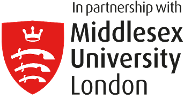Overview
 This module has been designed for students preparing for the extended project module of the Masters in professional practice pathway. The focus will be on developing a proposal for a small scale research study, an audit or a service improvement project. Students will be expected to apply their knowledge of research methodologies and methods to design a project which uses a systematic approach to inform the development of a specific aspect of professional practice, which is linked to local strategic aims and approved by their service manager.
This module has been designed for students preparing for the extended project module of the Masters in professional practice pathway. The focus will be on developing a proposal for a small scale research study, an audit or a service improvement project. Students will be expected to apply their knowledge of research methodologies and methods to design a project which uses a systematic approach to inform the development of a specific aspect of professional practice, which is linked to local strategic aims and approved by their service manager.
This module is quality assured by Middlesex University and the student will receive a Middlesex University award on successful completion.
Course content
Module aims:
- To provide the student with the opportunity to build on their existing knowledge of research methodologies and methods to develop a proposal for a small scale study or a service improvement project.
- To develop an insight into the principles of project management and how they apply to the management of the extended project proposed for year 3.
Knowledge (understanding):
- Critically evaluate the evidence base related to the focus of their enquiry.
- Critically appraise research methodologies and methods that could be used to inform their project proposal.
Skills (competencies):
- Formulate an ethical proposal which has a sound rationale, clear aim, SMART objectives, a sound methodology and a project plan.
- Conduct a comprehensive review of the literature to support their proposal
- Defend the proposal through a process of peer review
Syllabus:
The module will cove the following:
- Conducting a literature review,
- Service improvement models,
- Research design,
- Research methodology and methods,
- Developing a focused aim and SMART objectives,
- Creating a sense of fit between the aim and methodology employed,
- Project management tools and approaches,
- Getting the most from peer review
- Ethics and research governance
Teaching
The students will undertake 300 hours of independent and facilitated learning over one semester of 15 weeks.
Our pedagogical approach, aligned to Universal Design for Learning (CAST 2018), is to offer a range of teaching and learning experience to enable deep learning and mastery of the subject. Using a blended learning multimedia approach, teaching content will be available using technology such as videos, narrated PowerPoints and podcasts through the Institute’s Learning Pod. Knowledge and understanding, as well as application to the student’s area of practice, will be developed through a range of teaching methods suited to the module content including small group teaching and group discussion. Formative assessment will include a report on the student’s literature review search strategy and key themes identified, the format of which will be negotiated between the student and module lead.
There will be embedded sessions to address the expectations of studying at Masters level available to continuing students, as well as access to additional optional study skills sessions, both online and workshop based.
Assessment methods:
Summative:
Task 1:
A 15 minute presentation (oral or digital) of their proposal which will be reviewed and assessed by their peers. This will assess learning outcome skills 2.
20 % of total module mark
Task 2:
A research or service improvement project proposal of 5000 words which can be completed over a 9 month period in year 3. This will include a 3000 word review of the literature. This will assess learning outcomes knowledge 1 and 2 and skills 1 and 2.
75% of total module mark
Entry requirements
Students accessing this programme will normally hold a relevant first degree (2:2 or above). Consideration will be given to applicants who have extensive experience and can demonstrate that they have the equivalent 'graduate level' skills by virtue of this experience. These individuals will be able to seek alternative entry through the accreditation of prior learning process. International students must demonstrate competence in English language through IELTS 6.5 (with minimum 6.0 in all components) or equivalent.
Fees and funding
Funding may be available for States of Guernsey employees. Please discuss with your manager.
Careers
RM to provide information
Book now
Email: theinstitute@gov.gg

